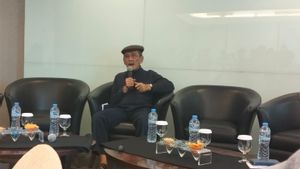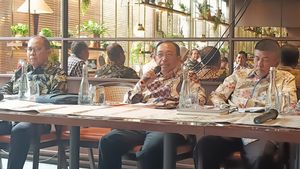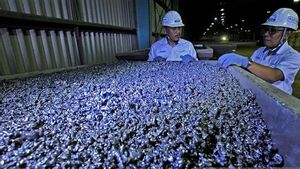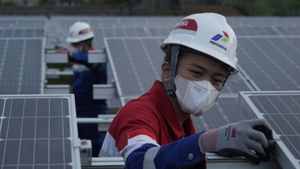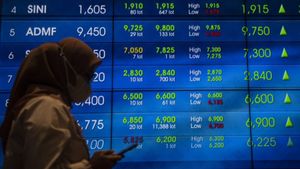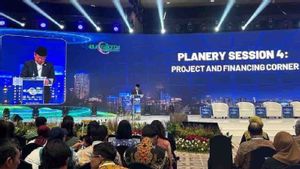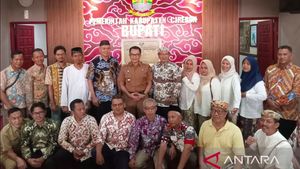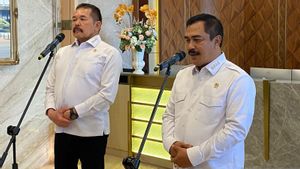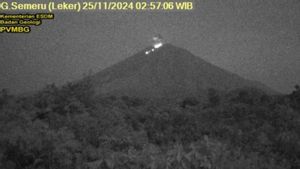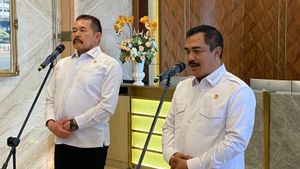JAKARTA - Senior Economist Faisal Basri assessed that the government is too focused on making Indonesia the center of world nickel, but does not pay attention to the welfare of workers working in nickel processing itself.
Faisal said that there are frequent conflicts between workers in the country and China due to cultural differences. For example, Indonesian workers who join labor unions and usually protest. However, China is not used to this.
This, said Faisal, is not taken into account by the government.
"Why is there a conflict between Chinese and Indonesian workers. In China there is no labor union, right? There is one here. It doesn't connect them, the important thing is that we are the world's nickel center, that's all," Faisal said in the Publication of the Ecology & Emancipation People's Action Study (AERR) in the Kuningan area, South Jakarta, quoted Thursday, September 26.
"There is no Ministry of Social Affairs invited, anthropologist, sociologist, nothing," he added.
Not only that, Faisal also admitted that he was annoyed with President Joko Widodo (Jokowi)'s statement that the value of nickel exports could reach Rp510 trillion and could be enjoyed by Indonesia later.
According to him, downstreaming is only enjoyed by entrepreneurs from China. This is because the technology used also comes from the country.
"The added value consists of profits, entrepreneurs get profits? Yes, entrepreneurs from China, yes, 100 percent (of the results) to China, the sandals get coins. Technology from China, all the patent fees are from China, banks are from China, yes, interest (enters) again to China," he said.
It is known, Senior Economist Faisal Basri answered that President Joko Widodo (Jokowi)'s objection regarding the downstream nickel policy in Indonesia only benefits China.
Previously, President Jokowi said that downstreaming gave added value to the country to reach Rp510 trillion.
Quoted from his personal blog, Faisal Basri said that the figures presented by the President were unclear about the sources and calculations.
"The president wants to make sure that the downstream nickel policy is very profitable for Indonesia and there is no true accusation that most downstream policies are enjoyed by China," Faisal continued in his blog quoted Monday, August 14.
Faisal detailed that based on 2014 data, the export value of nickel ore code HS 2604 was recorded at only Rp1 trillion. This was obtained from exports worth 85.913 million US dollars multiplied by the average exchange rate of rupiah in the same year, which was Rp11.865 per US dollar.
"Then, where did the figure of Rp510 trillion come from? Based on 2022 data, the export value of iron and steel code HS 72 which is claimed to be the result of downstreaming is US$27.8 billion. Based on the average exchange rate of rupiah in 2022 of 14,876 per US dollar, the export value of iron and steel code HS 72 is equivalent to Rp413.9 trillion," explained Faisal.
SEE ALSO:
Apart from the difference in data between what was conveyed by the president and his calculations, continued Faisal, it is true that the surge in exports from downstream results, which is 414 times, is really fantastic.
"However, does export money flow to Indonesia? Given that almost all 100 percent nickel ore processing smelters are owned by China and Indonesia adheres to the free foreign exchange regime, it is the Chinese company's right to bring all its exports abroad or to its own country," said Faisal.
The English, Chinese, Japanese, Arabic, and French versions are automatically generated by the AI. So there may still be inaccuracies in translating, please always see Indonesian as our main language. (system supported by DigitalSiber.id)



